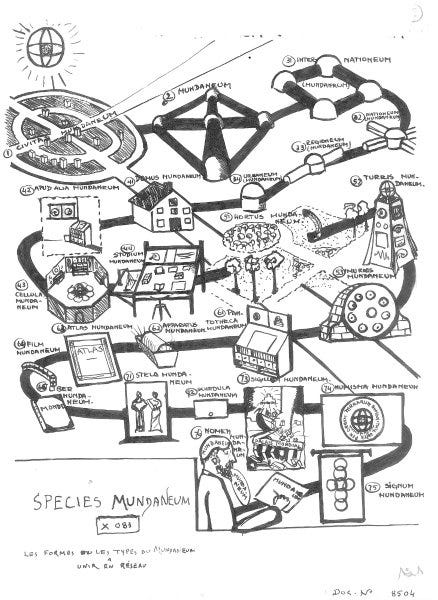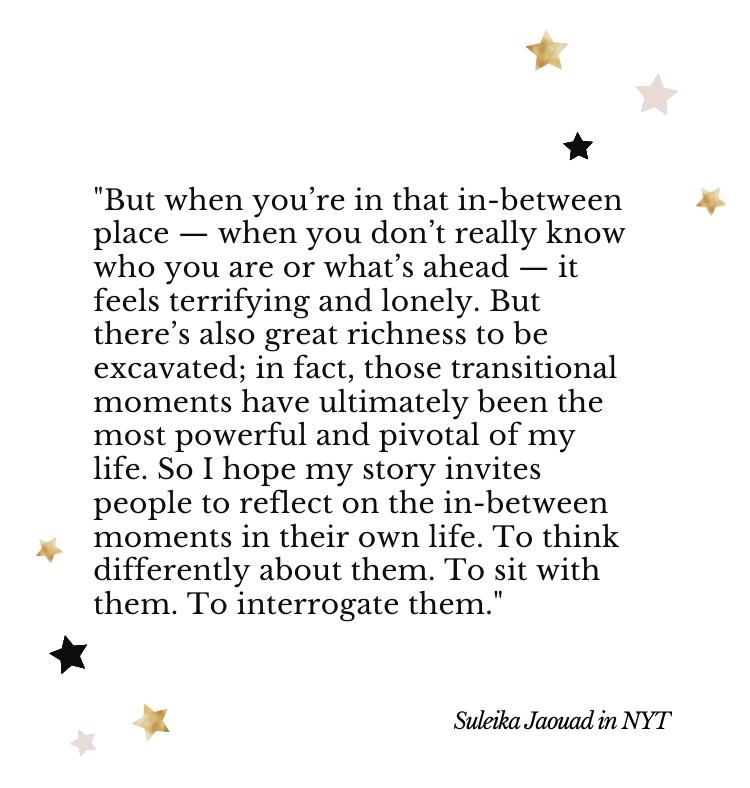Time Spent is a series of letters exploring how and why we should read the news, do care work and spend our time. If you’re new, subscribe here!
Good morning,
It’s been a few weeks since I’ve written a letter as I’ve been sitting in an in-between place with a writing project that needed my attention. The publishing world is interesting. It asks, as any business does, for something compelling and straightforward. With nonfiction book writing that often involves costly tradeoffs: are you selling a narrative or advice? A history or an argument? Things that are a mixture are hard to sell and you inevitably have to limit the scope of your project in a way that costs something. A writer I reached out to for advice recently said that the best books are idiosyncratic. I fully agree. And so I’ve been off wondering and revising for a while.
This newsletter issue is, however, a celebration, because I’ve somehow reached 50 editions of Time Spent! I’m very grateful for those of you who have been along for the ride and seen it evolve from assorted notes to small arguments about the future of journalism.
For the next few months, I’m going to send the following in order to reserve time for other writing.
Notes & links from a cluster or constellation
A how might we prompt for some reflection
A quote that’s gotten me thinking
Once or twice a month, I’ll send an interview with an expert in media or culture. I have two in the pipeline about language choice and making the internet work for you.
In week-beginnings, clusters and constellations, I described how I structure my time and research archive when it comes to my own media consumption. A constellation is comprised of notes I’m taking on a question I have been thinking about. A cluster is comprised of notes I’m taking on a topic I’m interested in. I’ll include one each week.
🥬 Cluster: Gen-Z & Media
Are young people ambivalent about Ukraine — or about the news? (Boston Globe)
Op-Ed about “why the kids of today are disconnecting from mainstream news narratives” which is an extended rumination off a weak news peg about young people being less sympathetic toward Ukraine than those 65+.
He writes: “There is competition for social prestige to provide novel interpretations of the day’s events, with bonus points for taking a controversial position. The daily inhumanities in Ukraine become just another media happening to be deconstructed. They hold similar importance to the slap Will Smith gave Chris Rock at the Oscars — it’s an event to be disputed. Was it staged? Was it justified? Was it a distraction? Your answers can earn you prestige online.”
I think understanding Gen Z goes way deeper. 🤔What the media needs to know about Gen Z, the "zoomers" and their "Fight" (CNN’s Reliable Sources)
Interesting episode where Brian Stelter interviews John Della Volpe, author of the new book Fight: How Gen Z Is Channeling Their Fear and Passion to Save America. Two insights that stood out to me:
1) News events shape generations. Gen Z is unique in that no other generation has seen this much angst or turmoil in a short amount of time *without also* seeing the promise of America coming together.
2) The majority are turning away from traditional media to protect their mental health, and if media companies want to reach them, they need to build trust based on their values. Their version of the American dream is flexibility, friendship and community.9 TikTokers Who Are Revolutionizing Sex Education Online (them.)
Great piece on TikTokers who teach sex ed for LGBTQ+ people.
“In high school, I didn't know what things like PrEP were, I didn't know the difference between HIV and AIDS,” says one. “And so seeing that void of information – once I discovered just how much I didn't know — really motivated me to not only educate myself, but then turn that into educating other people.”
This is just one tiny example of valuable content on TikTok, directly addressing knowledge gaps in education and media.Gen Z refuses to be locked in: How teens invent workarounds against the worst parts of centralized tech (New_Public)
Really interesting piece on how intentional teens are about their social media use. Highlights:
Daily decisions: ”Part of the work of being a young person in 2021 means making daily decisions about how to engage on various platforms—and at times, actively messing with the larger structural forces of an industry that desperately wants to expand its foothold in their lives.”
Managing vulnerability: “Far from accepting the kind of centralized vision of interaction that would be required to sustain the “metaverse” (the tech futurist fixation of the moment), youth are busy segmenting and compartmentalizing their social engagement across different platforms according to their own needs. They recognize both their vulnerability to an industry determined to monetize them, and their power to push back.”
So much media literacy and media marketing speak is about how to reach/educate Gen Z but I increasingly feel like we could learn so so so much from teens about how to consume the news effectively if we collaborated with them more. Anyone know good projects on this?
“A good media diet is about more than diversity of sources. It is also about information with different purposes. Investigative journalism takes time and resources. Social media shrinks time and resources but can respond quickly. Newsletters give context and help us make meaning of information events. We cannot parse everything. The answer to the problems created by scale is to acknowledge that we are not infinitely deep containers that can take on as much water as information demands. We must witness, but we must remember that we have limits.”
I’m currently preparing a talk for an employee wellness program about how to consume media in a way that protects our health. Every now and then, someone in the media offers advice on this. Above is Tressie McMillan Cottom in NYT.

The know-your-limits / have boundaries / you don’t need to consume everything just because it’s coming at you version of advice is the most popular. But I think there’s something to be said for completing the consumption cycle.
For new subscribers, here are my three favorite pieces of advice for media consumption:
Don’t read/watch/comment on anything when you first encounter it. Send it somewhere to look at later. I do this by sending absolutely everything I encounter and find mildly interesting to Evernote. Articles, videos, tweets, IG posts, newsletters, even informative texts from friends. Then I look at it a couple of days later. With the exception of breaking news, I tend to be a few days late to everything and don’t mind one bit.
When you go back to view your pickings, do it at a time when you feel you have the cognitive/emotional energy for it. You may find that’s only once or twice a week. This is a good indication that you don’t have the bandwidth for more consumption, which is fine! Batch reviewing is also very helpful to delete things that aren’t actually important and drawing connections between things that are. It’s often how I land on my constellations and clusters above.
Output is as important as input. Find an avenue, or a few, for output. Have you ever felt dizzy or nauseated from staring at a screen for too long? Or triggered by the sound of the news? I find that this most often happens when that information doesn’t have a way out of us. Whether it’s writing to process what you’ve learned, creating intentional space to discuss news/media with people you trust, or physically working it out of your system, lighten the load and make room for new information by letting the old stuff out.
A helpful analogy is:
Hunt/Gather/Collect — research, books, docs, social & legacy media
Cook/Eat/Preserve — sit patiently with media collection 1-3x per week
Digest/Excrete — schedule discussion dates, write, work it out, throw it out
We could dive deeply into the components of each of these steps but I’ll leave it there for now with the following prompt: How might we schedule a simple routine in our week to optimize for a more digestible media diet?
I finished reading Between Two Kingdoms a few weeks ago, which is a breathtaking book, and I’m currently doing the 100 Day Project, which is a gentle, wonderful way to explore an in-between, be it in a project, a turning season or life in general. Here’s Suleika in a recent NYT interview about her second battle with cancer:
Hope you enjoy the new format! As always, feel free to reach out with topics for constellations/clusters you’d like to see me include in the future, or links you think others here would enjoy.
Time Spent is an entirely free resource on media/culture and a public part of my writing practice. Spreading the word is immensely helpful as I test out some of this thinking.
Happy Friday!
Jihii










I enjoyed reading this thought provoking letter! I especially found the Gen Z section interesting. It explained my and many of my friends’ attitude toward news media as I tend to read news articles not as facts but as narratives. This made me think if the role of a journalist is changing from a provider of facts to a provider of narratives. Or journalism in and of itself is something that sits in between facts and narrative??